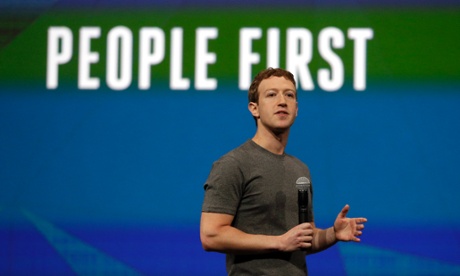
Facebook chief executive Mark Zuckerberg has suggested that cheaper mobile data, rather than just cheaper smartphones, will be the key to spreading internet access in the developing world.
In an op-ed piece for the Wall Street Journal to promote Facebook’s Internet.org initiative, Zuckerberg suggested that with around 2.7bn people already connected to the internet, its growth cannot be taken for granted.
“Not only do the vast majority of people have no access to the Internet, but even more surprisingly, Internet adoption is growing by less than 9% each year,” he wrote. “That's very slow considering how early we are in its development and that this rate is only slowing further.”
Facebook launched Internet.org in August 2013, working with mobile operators and infrastructure companies including Samsung, Nokia, Opera, Qualcomm and Ericsson to make internet access more affordable in the developing world.
“A common belief is that as more people buy smartphones, they will have data access. But that isn't a given. In most countries, the cost of a data plan is much more expensive than the price of the smartphone itself,” wrote Zuckerberg in his WSJ piece.
He cited the example of an iPhone with a two-year data plan in the US, where the device might cost $500-$600, but the data plan will cost $1,500, and called for “more efficient” ways of building internet infrastructure elsewhere in the world.
That might seem like a plug for Facebook’s own efforts within its Connectivity Lab to – as Zuckerberg put it in a status update in March – “build drones, satellites and lasers to deliver the internet to everyone”.
However, the new article’s emphasis is more on Zuckerberg’s desire for operators to make their existing mobile networks more accessible.
“In fact, almost 90% of the world's population already lives within range of an existing cellular network. For everyone in those areas, we don't need to build completely new kinds of infrastructure to help them connect. We just need to show why it's valuable and make it affordable,” he wrote.
“The challenge for our industry will be to develop models for Internet access that make data more affordable while enabling mobile operators to continue growing and investing in a sustainable way.”
Critics will inevitably point to the way Internet.org serves Facebook’s own corporate aims of continuing its global expansion, especially if its growth starts to plateau in the developed world.
So when Zuckerberg suggests that “in the future, everyone should have access to basic Internet services as well, even if they haven't paid for a data plan” those basic services include the messaging and social networking features provided by Facebook – and ultimately the advertising opportunities that come with them.
“Nothing about this future is guaranteed. The coming years will be a battle to expand and defend the free and open Internet,” he wrote. “Our success will determine how far this vision of a connected world can go.”
• Why the future of Facebook is all about your smartphone

